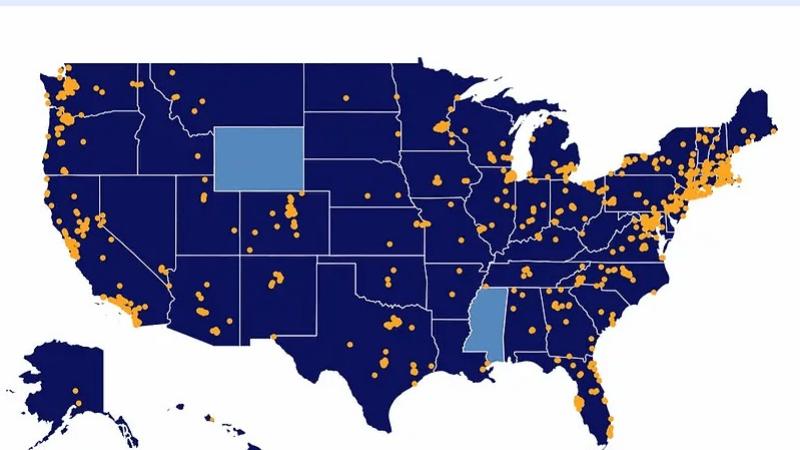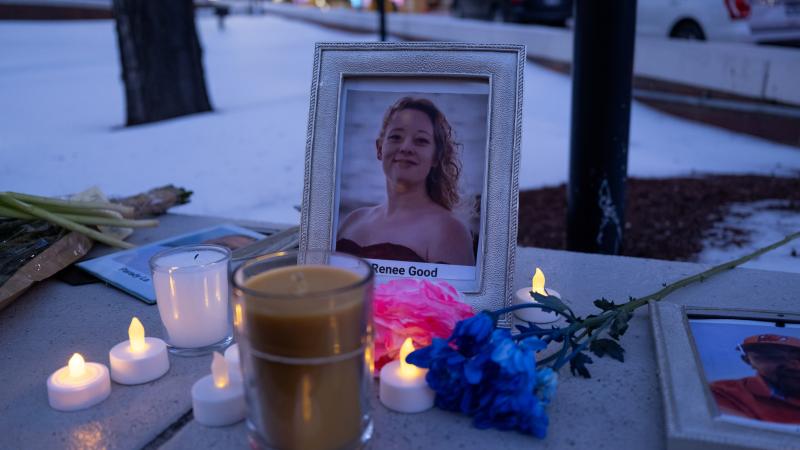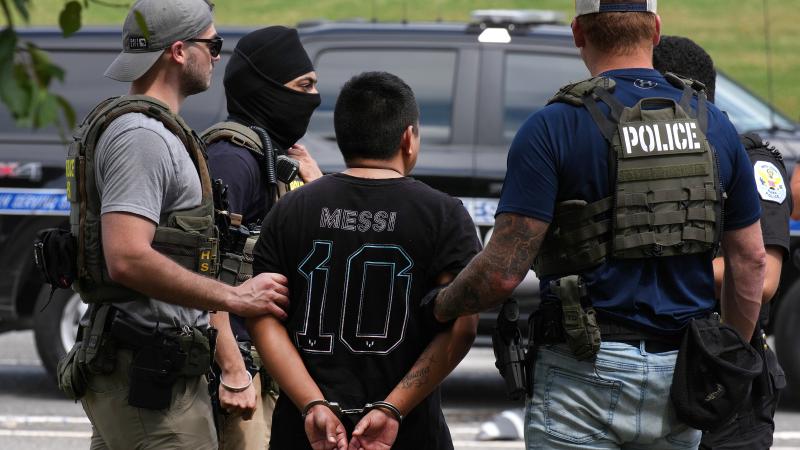Columbia student freed from jail was interviewed by FBI about 'kill the Jews' claims by informant
Mohsen Mahdawi has been freed from prison by a judge despite witness claims to police that the Palestinian-born Columbia student had made comments about his desire to "kill Jews" a decade ago.
The federal judge in Vermont who on Wednesday released a Columbia University student detained in mid-April by federal immigrant agents revealed in the court proceedings that the FBI had interviewed the student about claims by an informant that he had said he helped to “kill Jews.”
In the ruling by Judge Geoffrey Crawford, the Obama-nominated judge revealed that two informants had alleged that Mohsen Mahdawi, a pro-Palestinian activist, had made comments in 2015 related to killing Jews. But the judge ruled that because the FBI had seemingly not acted upon the claims after interviewing him a decade ago, there was likely no supporting evidence for the claims.
Crawford’s order does not end the Trump administration’s effort to deport Mahdawi. It allows him only to remain free while his case proceeds.
Mahdawi was arrested April 14 when he arrived at a federal immigration office in Vermont.
Inside his 29-page court order Wednesday, Judge Crawford revealed pieces of information from Justice Department filings that remain non-public.
The judge said that “the Government directs the court’s attention to an incident in summer 2015” where “a gun shop owner told Windsor, Vermont police officers that Mr. Mahdawi had visited his store twice, expressing an interest in learning more about firearms and buying a sniper rifle and automatic weapon.”
The gun shop owner informed the police that Mahdawi had allegedly told them that Mahdawi “had considerable firearm experience and used to build modified 9mm submachine guns to kill Jews while he was in Palestine.”
Crawford wrote that “the store owner gave the police the name of a fellow gun enthusiast who stated that he had a similar conversation with Mr. Mahdawi at the ‘Precision Museum’ in Windsor where the enthusiast served as a volunteer tour leader.” The tour leader told police that Mahdawi had allegedly told the gun enthusiast that “I like to kill Jews.”
“In his reply, Mr. Mahdawi stated that in November 2015, FBI agent Marc Emmons interviewed him concerning the allegations from July 2015. Mr. Mahdawi confirmed that he had visited the gun shop and the Precision Museum but that he had never discussed buying weapons or killing Jews,” the judge wrote.
“His purpose in visiting the gun shop was to learn whether he was required to register a shotgun his wife had given him as a present. There was no registration requirement for her gift. He went to the museum because it is located just a few blocks from where he lived, and he is interested in machines and previously studied engineering. Mr. Mahdawi states that the FBI agent was satisfied with his explanation and closed the investigation.”
Crawford wrote that FBI agent Emmons “appeared at the hearing on the motion for release” yesterday “at the court’s request” even as “the Government raised concerns that questioning Mr. Emmons about his investigation could compromise national security concerns.”
The judge said that “the Government agreed with Mr. Mahdawi that Mr. Emmons’ investigation ended in 2015 – although not “closed” in any official way – and that there were no charges against Mr. Mahdawi or other unfavorable action.”
Crawford also said “the Government states that it has some other information that it has not shared with the court” at this time.
“The court is satisfied that the information in the police report does not support a finding of dangerousness,” the Obama nominee concluded. “If the FBI had substantiated the information, some action would have resulted. That nothing took place supports Mr. Mahdawi’s description of meeting with SA Emmons and satisfying him that the two informants were not truthful.”
The judge continued: “He also presents no danger to his community or to others. The court has considered the allegations made by the gunsmith in 2015. If true, they are highly damaging to Mr. Mahdawi’s chances of release and of having any future in the United States at all. In 2015, the FBI conducted a thorough investigation of the allegations and found no basis to act. Had the statements attributed to Mr. Mahdawi been true, they would have resulted in some official response. In a case of the dog that did not bark, the FBI concluded its investigation without taking action. The decision gives rise to a reasonable inference that the agency charged with the protection of the public from crime found no basis for proceeding against Mr. Mahdawi in any venue.”
He also said Mahdawi “entered the United States legally in July 2014 and was married for some years to an American citizen.”
The judge said Mahdawi had “been a legal resident of the United States for ten years” with a green card dated January 2015, and that he “owns a small cabin that he built himself” in Vermont. He has been a Columbia University undergraduate majoring in philosophy since 2021, and hopes to graduate this month, with plans to then get a master’s degree at Columbia beginning in September.
Crawford said in his Wednesday ruling that “the Government also points to an incident in January 2019 in whicj Mr. Mahdawi was stopped at the border and found to be carrying drugs. Mr. Mahdawi describes these as prescription medication. He was sent to diversion through state court and any record of the offense has been expunged.” The judge said that Mahdawi “denies possessing illegal drugs in 2019.”
The judge said that, additionally, “the Government notes that in the course of separating from his wife in 2018, the couple quarreled and the ex-wife surrendered a firearm to the police for safekeeping.” Crawford said that “the domestic incident was an argument that led to no charges. Today his ex-wife is a close friend and supporter.”
It was reported by the New York Times in April that Secretary of State Marco Rubio had determined that Mahdawi should be deported because his actions could “potentially undermine” the Middle East peace process.
Rubio’s memo also allegedly contended that Mahdawi had “engaged in threatening rhetoric and intimidation of pro-Israeli bystanders” and that the outlet characterized the memo as saying that Mahdawi’s “actions had undermined efforts to protect Jewish students from violence.”
Luna Droubi, a defense lawyer for Mahdawi, told the outlet that the memo’s assertions were “baseless claims made with no evidence.”
“The court is aware that he has offended his political opponents and apparently given rise to concerns at the State Department that he is an obstacle to American foreign policy,” Judge Crawford asserted on Wednesday. “Such conduct is insufficient to support a finding that he is in any way a danger as we use that term in the context of detention and release.”
The judge said that he “orders the release of Mohsen Mahdawi on his personal recognizance during the pendency of this habeas proceeding.” The conditions of the Columbia student’s release are that he reside in Vermont, that he can travel to New York for school or to meet with his attorneys, and that he attend all of his future court hearings in person.














